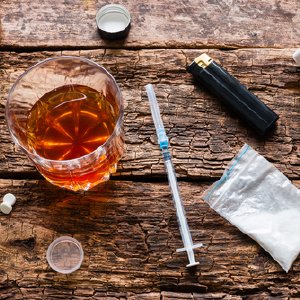Preventing Addiction When Loved Ones are Vulnerable
There are certain moments in a person’s life when it looks like a better idea to indulge in drugs or alcohol rather than struggle with an overwhelming life situation. If a family can identify these moments before things get out of control, they can preemptively ward off drug abuse that could easily slide into addiction.
If a person does reach for drugs or drinks and it seems to make life more tolerable, the individual is likely to repeat the experiment. The more valuable the drug experience appears to be, the more likely they will choose this method of relief, relaxation, stimulation or escape again.
Let’s look at a couple of examples. A high school student wants to be a cheerleader more than anything in the world. She practices hard for the tryouts but during her performance, she falls and ruins her routine. A few observers laugh at her. She’s crushed. Factually, it could take her months to let go of the pain. But that weekend, when her friends start drinking, she joins in for the first time. It feels so good to feel confident and outgoing again, even if it’s false.
A young man has been working on his track skills for years and is told that he has a shot at winning the state title and going on from there. An accident shatters his knee. Not only is he in extreme pain but his dream is also shattered. Once the pain has gone away, he keeps taking the pain pills for the warm, uncaring feeling it gives him.

If a family or close friends can identify those moments that might strike down a person’s usual resistance to drug or alcohol use and compensate for their vulnerability, they have a good chance of preventing drug dependence or maybe even saving that person’s life.
Dangerous Territories People Can Get Lost in
When you see a loved one go through one of these experiences, take action:
- A sports injury, especially a career-ending one. This is a severe adjustment for anyone, and if it’s coupled with pain, it’s even more difficult to cope with. If it’s a youth, keep control of every single pill. This can prevent this young person from getting started on a very common path to addiction. If it’s an adult, help keep track of the number of pills available and note if they disappear too quickly. Let the person know that you understand how profoundly this change affects them and when they are ready, help them consider new opportunities for rewarding endeavors. Try to keep them engaged and interested in other parts of life they enjoy.
- Physical, mental or sexual abuse. Tragically, it can take years for this abuse to be exposed. This abuse has been the trigger for many people to seek refuge in drugs or alcohol. If you are on hand when abuse is revealed, caring communication and steady, consistently uncritical support can go a long way toward preventing escape into drugs.
- Occupational injuries. There are many professions that suffer work-related injuries. Construction and maintenance workers, truck drivers, soldiers, nurses, emergency medical personnel, law enforcement officers, miners, factory workers—any of them can be injured sufficiently to end their ability to work in their previous jobs. Perhaps you can help the person find job counseling or training services that will prepare them for a new type of employment. And keep an eye on their pain medication while they heal.
- Business setbacks. The loss of a business, being informed of a huge tax bill, being betrayed by a partner, losing a big deal to another company—these can all knock the wind out of a person. To prevent them from sinking into lasting failure that cries out for drug use, offer your support and empathy. Call on other friends and family to provide loyal backing at this time. Seeing how many people care for him may just pull the person out of the setback.
- Losses and changes. A move across the country is a difficult adjustment for many people. And losing a loved one sends many people into a decline that can last months. By bolstering a person up until he can take charge of his own life again, you can prevent his taking refuge in drugs. Some individuals who suffer an unbearable loss should not be left alone for days, especially if there has been drug or alcohol abuse in the past. If friends, family and sometimes even co-workers pitch in, a person struggling with severe loss or changes can work their way through this period of their lives without reliance on drugs.
It may feel like a huge burden to help a person through these challenges. But that challenge is small compared to the challenge of bringing them back from addiction. By that time, they could have not only suffered this trauma, they could have lost their families and everything of value. No matter how difficult this initial challenge is for them, addiction would be vastly worse and could even be fatal.
If everyone’s best efforts fail to keep drugs or alcohol away, Narconon Arrowhead can help that person come back to their best and brightest. We offer an effective method back from addiction that has helped tens of thousands of people over the last fifty years. Call us when you need to help someone recover from addiction and we will tell you all about our drug-free method of rehabilitation. Call Narconon Arrowhead at 1-800-468-6933.


